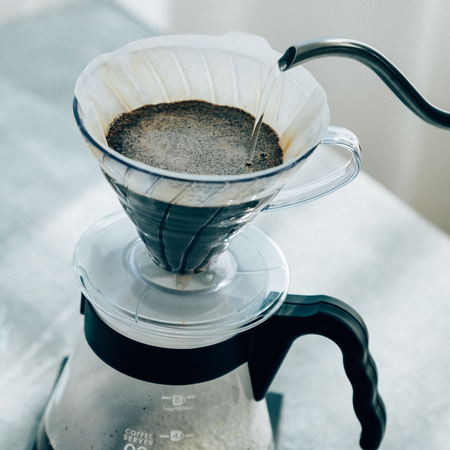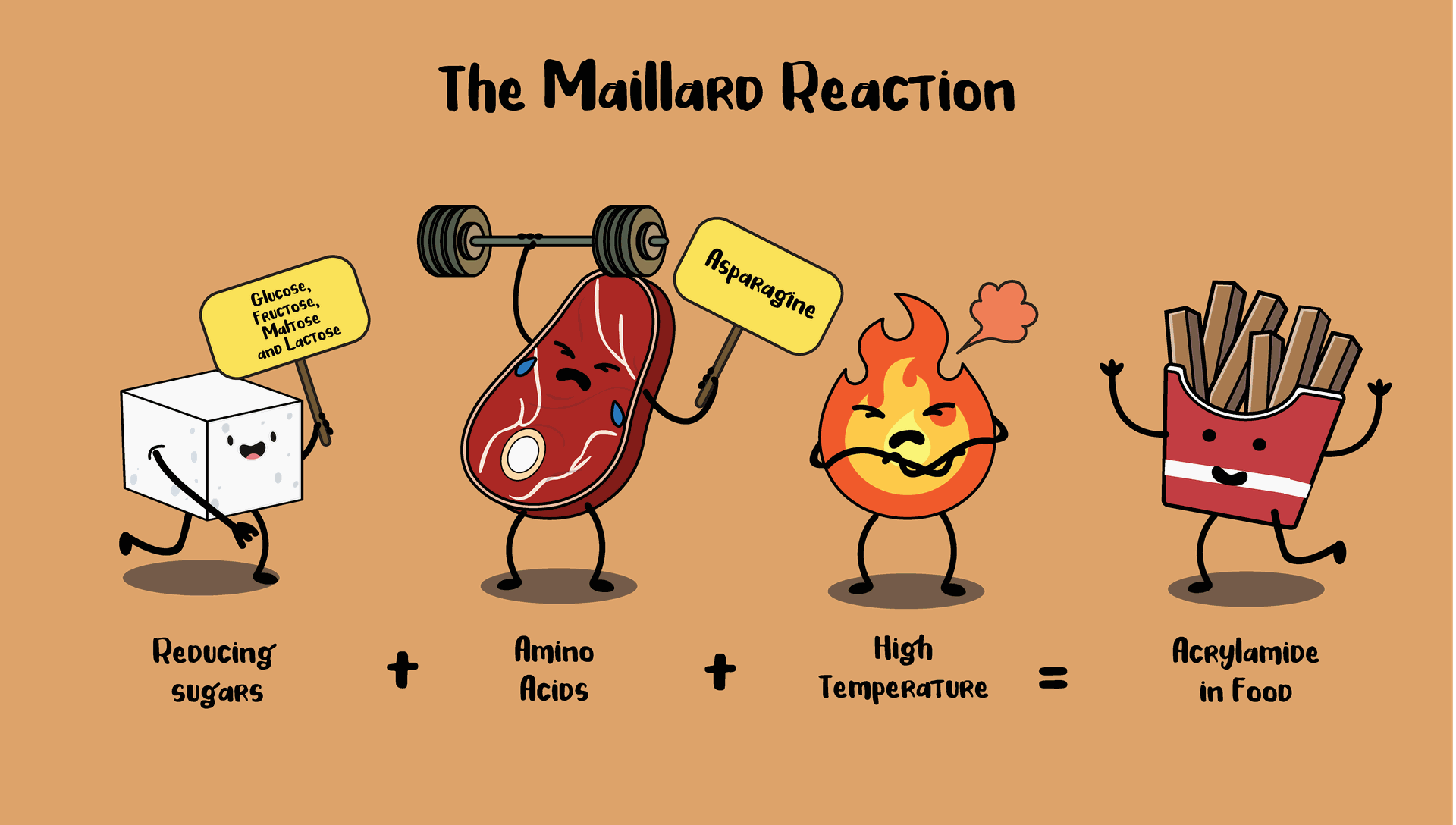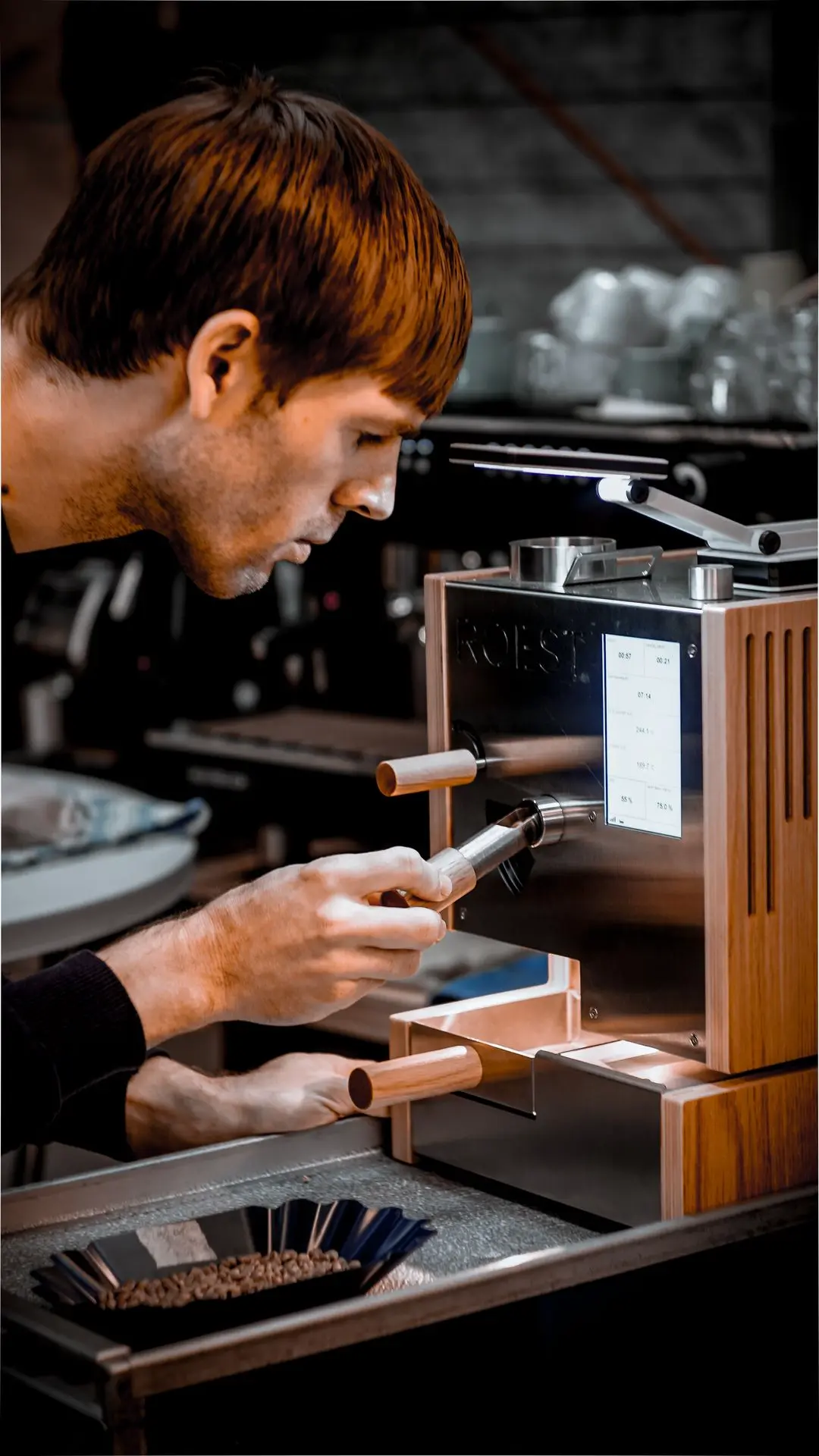Filter coffee is healthier
Filter coffee is low in cafestol (cholesterol) while being rich in caffeine.
Cafestol is present in high amounts in certain coffee types, such as espresso, French press, and Turkish coffee, which can elevate LDL cholesterol levels. In contrast, coffee brewed with a fine paper filter significantly reduces cafestol content, making it a healthier choice.
No need to worry; caffeine flows through paper filters, which means filter coffee actually has more caffeine than espresso and energy drinks! It's compatible with a low cholesterol diet and can help in preventing diabetes, particularly when compared to coffee made with metal filters.

➡️ Low in calories: high-quality filter coffee is best enjoyed without any additives like milk or sugar, making it a healthy choice (up to 5 cups daily). A typical serving of filter coffee has approximately 2 kcal per 250ml.
➡️ Hydration benefits: with over 98% water content, filter coffee hydrates the body nearly as effectively as pure water does.
➡️ Loaded with flavonoids (Polyphenols): for the greatest health advantages, filter coffee is a better choice (91.4 mg/serving) than espresso (28 mg/serving). These same advantageous compounds are found in red wine, fruits, and vegetables.
For more information, see the website of the dutch nutrition center.
What beans are safe?
avoid traces of mold and chemicals
In the EU all coffee has to comply with food safety standards. Does this mean all coffee is equal?
➡️ Not every batch is tested. Most companies only occasionaly test their coffee for traces of chemicals, mold, high acrylamide levels, caffeine, chlorogenic acid and trigonelline content.
➡️ Banned pesticides used in coffee origin countries: withMany perticides that have been banned in the EU are still being used in many coffee origin countries (where coffee grows).
➡️ Many companies care more about money then health: Beware of sleek marketing. greenwashing is abundant and popular in coffee sales.
For the most healthy coffee choose specialty grade coffee that is roasted not too dark but also not super light. Use a brewing method with a filter paper to brew coffee.
WB.coffee has tasty coffee blends and single origins that can be trusted. Read more about it below and choose your favorite!
Acrylamide in coffee?
what coffee to choose
Acrylamide is a chemical that is produced naturally during the roasting of coffee beans. But why should we be concerned? Since 2002, the detection of acrylamide in various food products, including coffee, has been a topic of investigation due to its potential health risks, which may include carcinogenic effects and possible damage to the nervous system.
Acrylamide forms in coffee due to the Maillard Reaction, a process that involves the interaction of sugars and amino acids, notably Asparagine, at high temperatures. This reaction not only contributes to the unique color and flavor profile of coffee beans but also results in the formation of acrylamide, which is less pleasant in comparison.

Which Type of Coffee Contains the Least Acrylamide?
Extending the roasting time at lower temperatures results in a reduction of harmful compounds in coffee. Many commercial blends and supermarket brands tend to be roasted quickly, as longer roasting processes require more time and consequently increase costs.
Arabica coffee beans produce the least amount of Acrylamide, making a slow, artisanal roasting process preferable as it results in lower Acrylamide levels. Consequently, standard espresso blends tend to have the lowest Acrylamide concentrations as they are often roasted longer than filter coffee blends.
While instant coffee has a lower caffeine content, it actually contains nearly double the amount of Acrylamide compared to regular coffee. The elevated Acrylamide levels are considered minimal and safe for consumption.
When choosing coffee capsules, it's important to pay attention to the type of beans and the roasting method used. Most commercial blends, supermarket capsules and big brands (yes also the Clooney) typically involve rapid heating, which can increase Acrylamide levels.
Likewise, with coffee pads, the coarseness of the grind is crucial, as finer grounds can lead to a greater extraction of compounds into the brewed coffee.
Is all that caffeine safe?
Each person's response to caffeine is unique, and you probably have a good sense of how it affects you. Caffeine is an alkaloid that enters the bloodstream rapidly. Its impact is different from person to person and it can take between 2 and 12 hours to break down in your body.
WB.coffee Specialty Coffee
roasted with 100% renewable energy ☀ and 0% gas
WB.coffee blends are roasted fresh on order. We roast with 100% renewable energy ☀ and 0% gas. For espresso, filter & cold brew.
- FC blend - Fruity & Chocolaty
- FF blend - Fruity & Floral
- FJ blend - Fruity & Juicy (coffee lovers favorite)
- The Chocolatier's Brew - Choco & Praline (with love from Brazil)
- VC blend - Vanilla & Caramel
- CN blend - Chocolaty & Nutty (HoReCa besteseller)
Chemical Free Decaffinated coffees
Single Origin - limited editions Get in touch to find out what's available and get flavor recommendations based on your taste!

Try 4 coffees with a Coffee Tasting Set. Available for filter and espresso with 4 blends or 4 single origin - limited edition coffees.
Not taking any risks? Try any blend (or all of them 🏃) from our tasting menu @ Amsterdam Coffee Lab in Weesp.